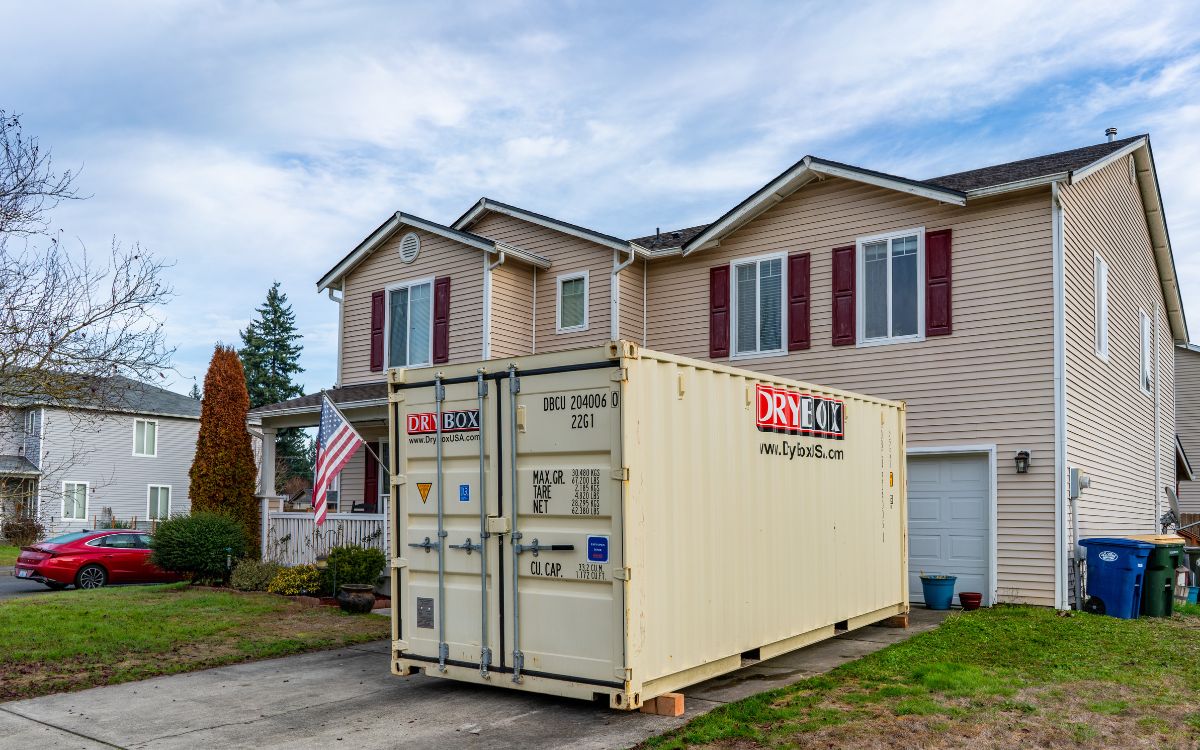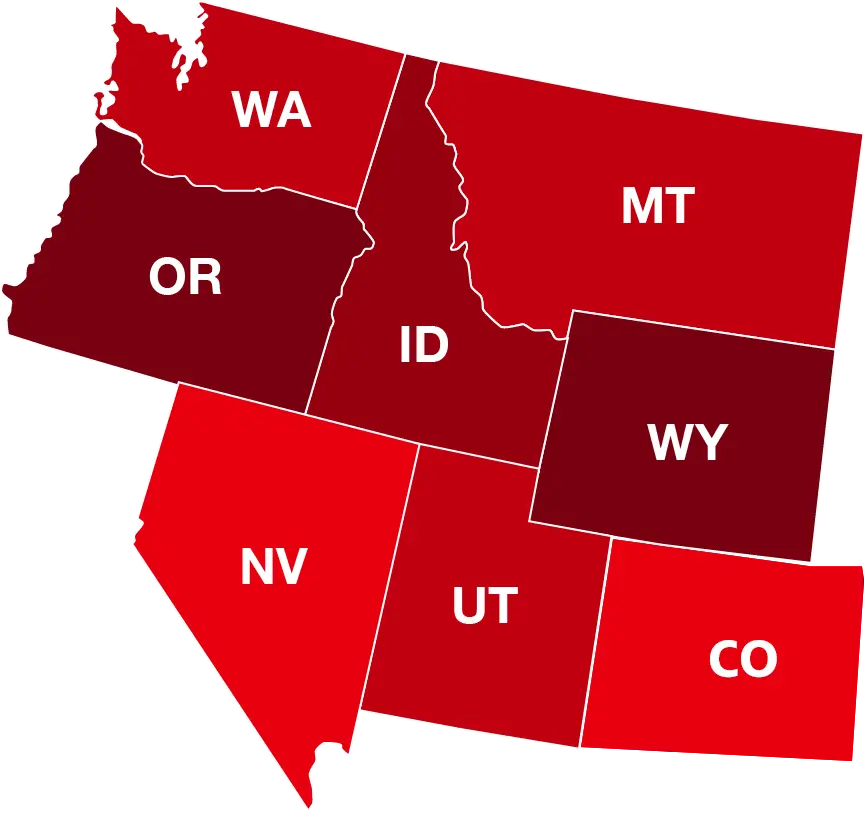The Cost of Storage Pods vs. Traditional Storage Units
In this present-day economy, it’s common already to look for a cheaper way to do things or even just find a quality service that lives up to its price, especially when it’s related to making something more convenient in our lives. And storage solutions are no exception.
With the growing need for extra space—whether due to moving, downsizing, or simply decluttering—finding the most cost-effective and convenient storage option is something that people should strive for.
That being said, which one’ll let your wallet suffer the least blow: storage pods or storage units? Let’s find out.
What Are the Advantages And Disadvantages Of A Storage Unit?
Traditional storage units have long been a go-to solution for many people seeking extra space. These units are typically located within a storage facility and offer a secure, climate-controlled environment for your belongings.
However, like any service, they come with their own set of advantages and disadvantages that should be considered before making a decision:
Advantages:
- Storage units offer enhanced security features like surveillance cameras, gated access, and sometimes on-site security personnel, ensuring your belongings are well-protected.
- Many storage facilities maintain consistent temperature and humidity levels, which is ideal for sensitive items like electronics, antiques, and documents. This helps prevent damage from extreme weather conditions, mold, and mildew.
- Storage units come in various sizes, making them suitable for storing everything from small personal items to large pieces of furniture.
Disadvantages:
- Accessing a storage unit requires traveling to the facility, which can be inconvenient, especially if you need frequent access to your items.
- You may end up paying for more space than you need, as storage units are rented based on size, regardless of how much of that space you actually use.
- Moving your belongings to and from the storage facility can incur additional expenses, especially if you need to hire a moving company or rent a vehicle. These costs can add up, making traditional storage units more expensive than they initially appear.
How Much Do Pods Cost On Average?
Storage pods, also known as Portable On Demand Storage (PODS), offer a different approach to storage. Delivered to your location, they allow you to pack and load your items at your own pace. This convenience is one of the main reasons people choose pods over traditional storage units.
The cost of renting a storage pod varies based on factors like size, rental duration, and location. On average, renting a pod can range from $300 to $500 per month for local moves—including potential hidden fees.

Pods Vs. Storage Units Cost Comparison
When comparing the costs of storage pods and traditional storage units, several factors come into play. Traditional storage units usually have lower monthly rental rates, typically between $50 and $200, depending on the size and location.
However, this price doesn’t cover the expenses of transporting your items to and from the storage facility, which can add up.
On the flip side, storage pods offer the convenience of being delivered to your home, but this convenience comes at a higher cost. Renting a pod typically costs between $150 and $300 per month, with additional fees for delivery and pickup. If you need more than one pod, the costs can rise quickly.
For short-term storage needs, pods can be more cost-effective because of their convenience and flexibility. But for long-term storage, traditional storage units might be a better deal, thanks to their lower monthly rates and features like security and climate control.
Hidden Fees
Both storage pods and traditional storage units can come with hidden fees that are not immediately apparent. For pods, these can include delivery fees, pickup fees, and mileage charges if the distance is significant. If you need to extend your rental period, there might also be extra charges that can quickly add up.
Traditional storage units, on the other hand, might have administrative fees, insurance costs, and potential late payment penalties. Some facilities also charge for access outside regular business hours or for specific services like climate control. These hidden fees can make traditional storage units more expensive than the initial rental cost suggests.
Long-Term Savings
Over the long term, traditional storage units generally offer better savings due to lower monthly rental rates. If you plan to store items for an extended period, the cumulative cost of renting a pod can become significantly higher than that of a storage unit. Traditional storage units may also provide discounts for long-term rentals, which can further enhance savings.
However, the convenience of storage pods can be invaluable in certain situations.
For instance, if you are in the middle of a move or renovation, the ability to have your storage right at your doorstep can save time and reduce the hassle, potentially offsetting the higher costs.
Pods Or Storage Units: Which Is Good For Long-Term Storage?
Storage pods and traditional storage units each offer unique benefits and challenges when it comes to long-term storage. Deciding which option is best for you depends on various factors, including convenience, cost, access, security, and climate control. To help you make an informed choice, we’ve outlined the key considerations in the table below, comparing the advantages and disadvantages of storage pods versus traditional storage units:
| Factor | Storage Pods | Traditional Storage Units |
| Convenience | Load at your own pace; store on property or at a facility. | Requires transportation to and from the facility. |
| Cost | Higher monthly rental costs ($150-$300/month) plus additional delivery and pickup fees ($100-$200). | Lower monthly rental rates ($50-$200/month). |
| Access | Easy access if stored on property, but requires enough space. | Access requires travel to the facility. |
| Potential access restrictions if stored at a facility. | Facility may have set operating hours. | |
| Security | Some pod companies offer secure options, but generally less robust than traditional units. | Enhanced security features like surveillance cameras, gated access, and on-site personnel. |
| Climate Control | Limited availability, usually more expensive. | Many facilities offer climate-controlled units, protecting items from extreme temperatures and humidity. |
Conclusion
Deciding between pods or storage units really comes down to your personal needs and situation. Both options have their own set of pros and cons, and the best choice for you will depend on factors like cost, convenience, accessibility, security, and climate control.
Storage pods are incredibly convenient and flexible, which makes them great for short-term storage or during transitions like moving or renovations. However, they tend to be more expensive and can have limitations in size and access. On the flip side, traditional storage units are often more budget-friendly for long-term storage and offer enhanced security and climate control, protecting your items better over extended periods.
When figuring out which option to go for, think about what you’re storing, how long you need to store it, and how much you’re willing to spend. By carefully weighing the pros and cons of each option, you can make an informed decision that best suits your requirements.
Ready to Choose the Most Cost-Effective Storage Solution?
If you’re ready to find the most cost-effective and convenient storage solution, look no further than Dry Box. We offer a variety of storage containers and customizable options to fit your needs and budget. Let us help you find the ideal container for your situation.
Get in touch with us today to learn more about our services and see how we can assist you in making the best choice. Contact us now and start your journey towards a seamless and efficient storage experience with Dry Box!









